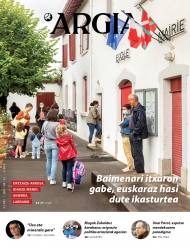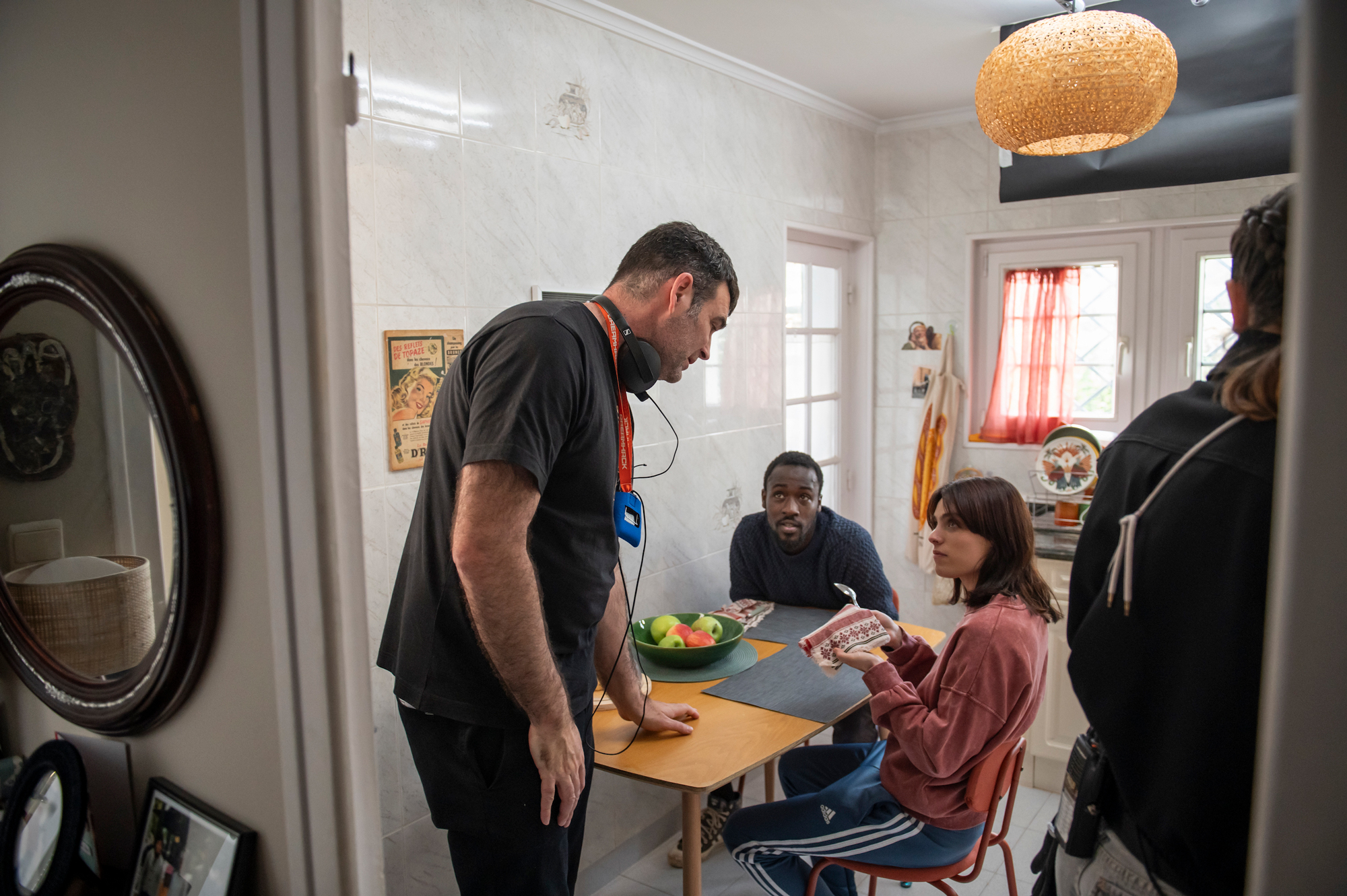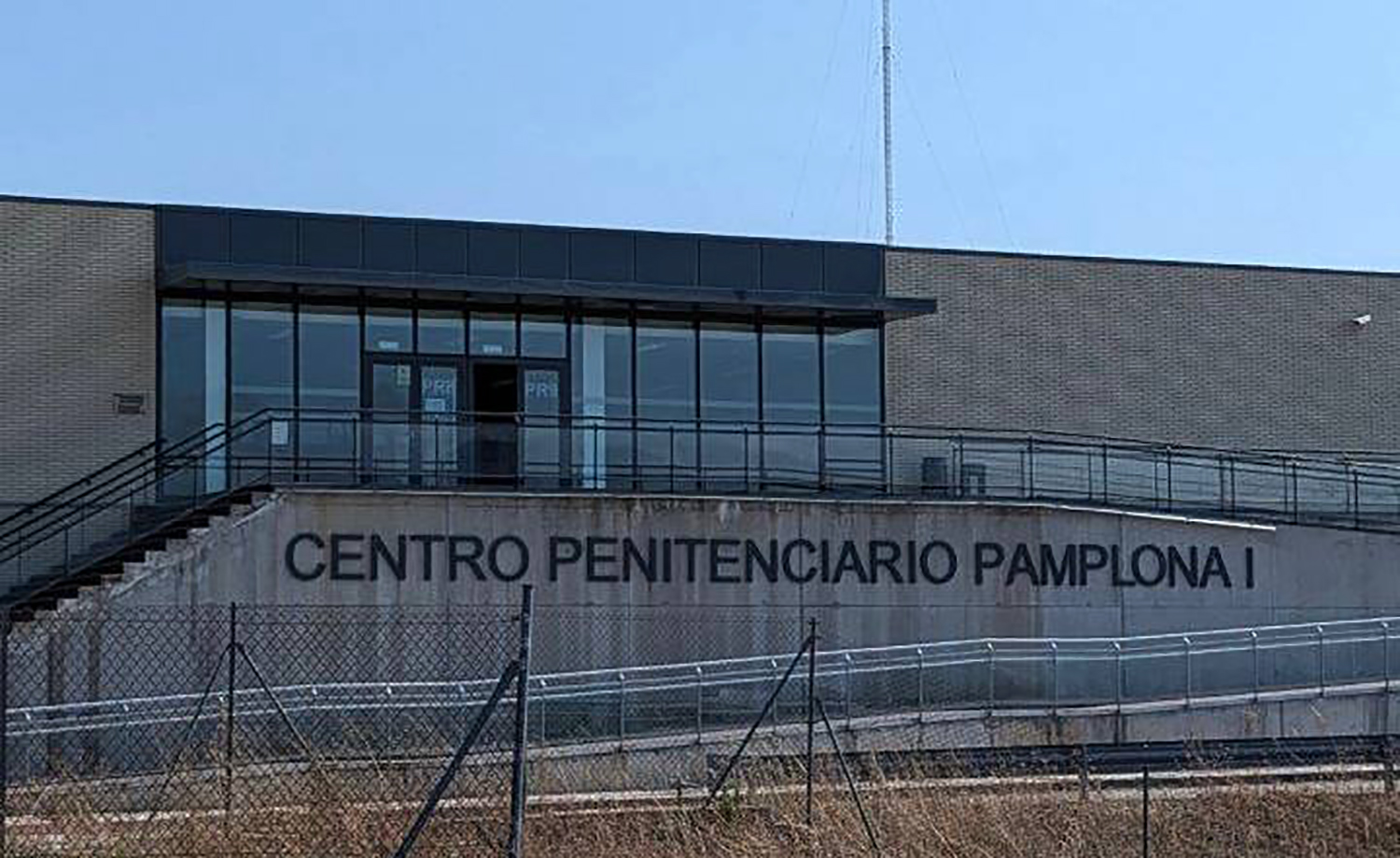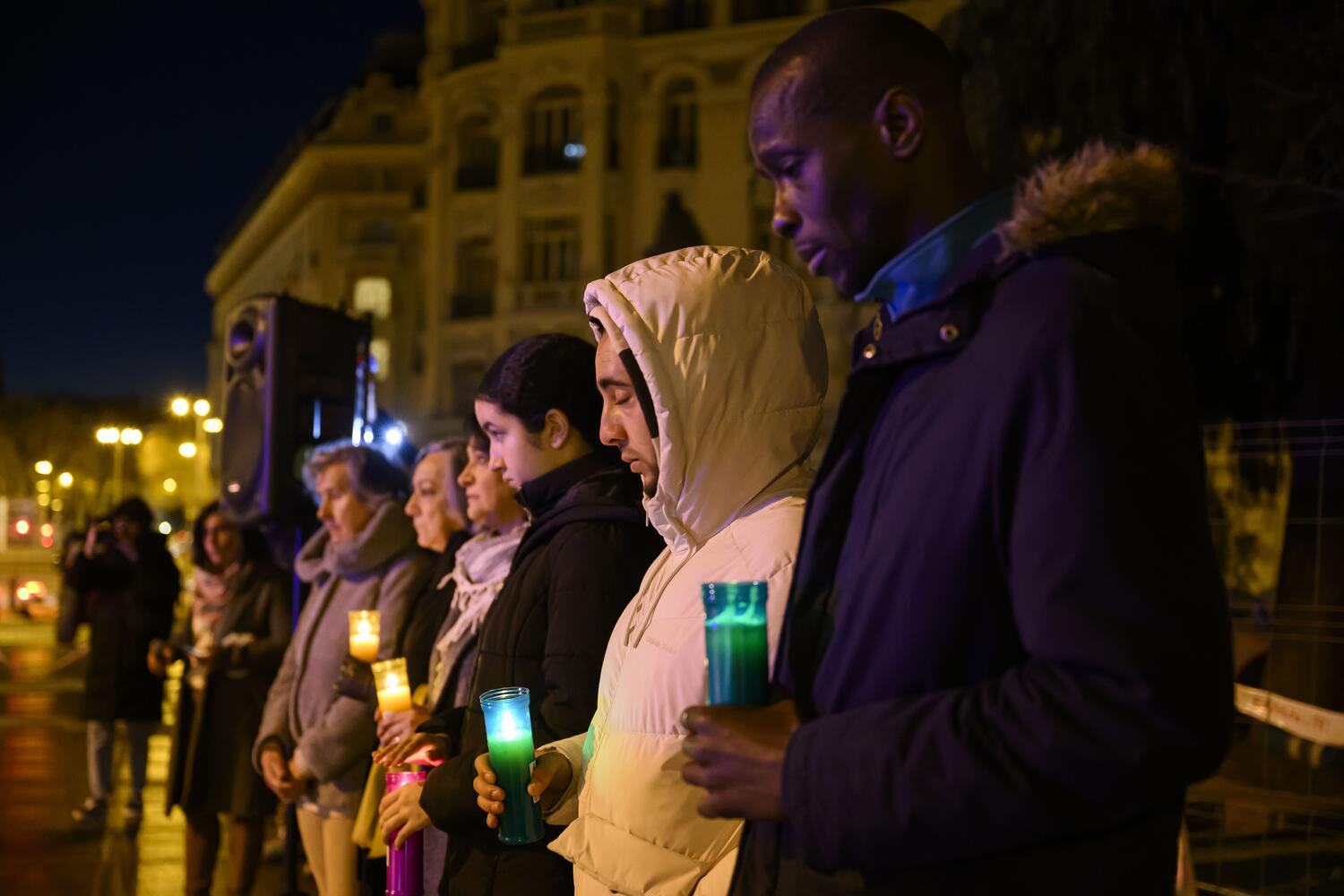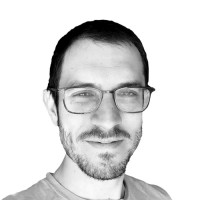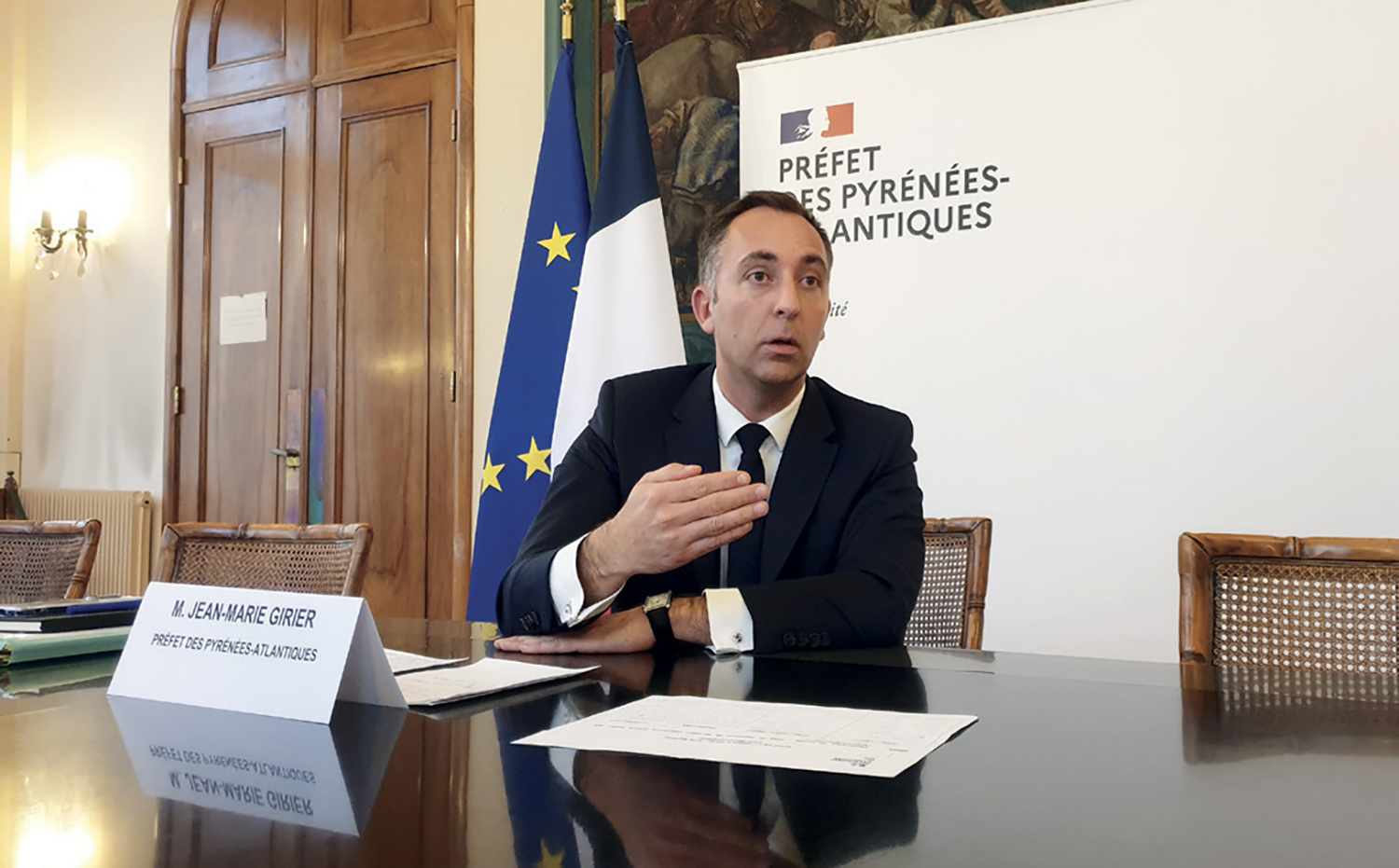Canaries converted into jail and tombs
- In July, as in the last six years, the Mugak Zabalduz, Karabana initiative was launched to denounce Europe’s migration and border policies. This year’s mobilization has involved more than a hundred people from Euskal Herria, along with other participants from the Spanish State, with a total of 350 people. On this occasion, we entrepreneurs have launched to the Canary Islands under the slogan “Canary Islands, not prison or tomb”.

For a week we have denounced in Gran Canaria and Tenerife the institutional abandonment and racism of the Spanish State, the militarization of borders and the migratory business, including the large NGOs, through demonstrations, performances, concentrations and actions; in the street and in the media. In the meantime, we have known firsthand the situation of those who feel trapped in these islands, as well as the response of the Canaries that has been organised to help them.
The most dangerous
gateway With the closure of other migratory routes, the number of migrants arriving in the Canary Islands from the autumn increased considerably, 22,000 people in 2020. They tell us it's Africa's most dangerous migratory route to Europe. According to official data, there have been more than 2,000 deaths in 2020 and more than 3,000 in the first half of 2021. According to Sukeina Ndiaye, president of the Tenerife migrant network, “there are many more who disappear at sea. They are people with a history behind them and families who have been depressed in the villages of origin.”
The experiences prior to the arrival by sea to the Canary Islands are repetitive: days and days on the skate, adrift, watch their fellow travellers die and throw them at sea, cold, fear, hunger. Elena Martínez-Darve Sanz, a member of the Assembly of Solidarity with Migrants, says that “we have known that she has come to the Caribbean losing the patera that went to the Canary Islands”. But the usual news is that the rescue teams are late.
Young Senegalese Mohamed explains why he risks: “I’ve been fishing in Senegal since the age of 7. We fishermen make very little money, the European fleet takes away all the fishing. We have no choice but to migrate in order to earn the salary and achieve a dignified life with our work. It is dangerous, but we have no other way of reaching European lands. We hope they will let us follow our journey. We want to work to help our family learn and have medicines for children. We're here, very patiently, for months."
Vicky, a member of Caravana and a member of the EgoYa platform, says that “there is no called effect, this is an expulsion effect, a structural poverty of colonial origin”. Sukeina Ndiay denounces in the same line: “Bringing a fish to Europe, that is easy, there is no need for asylum or international protection. But human beings, they are violated their rights.”
.jpg)
Canary Islands blocked When
migrants arrive without legal permission, they usually ask for asylum. The lawsuit gives them time, because the Administration takes one or two years to respond, and they have the right to move around the State during that time. In practice, however, this right is not guaranteed.
“With the excuse of COVID-19 and the alarm situation, starting in October the airport was blocked, these guys could not fly to the peninsula,” explains Ana Vizcaín, a member of the solidarity assembly with migrants. In April, a case was invoked and the trip to the peninsula with the request for asylum began to be authorised.” In the words of Elena Martínez, “for tourism they should start to wreck the Canary Islands”.
“The Canary Islands play a role as a southern border, as being an island facilitates the control of migrants. They have militarized the border and justify it through the discourse of the invasion. The number of migrants entering the Spanish state has never been higher than 5%, but the government is interested in focusing the media on these people”, said Bea Villahizane, a Navarre member of Caravana.
Institutional reception resources The massive arrival
of migrants and this blockade brought with it the concentration of migrants in the port of Arguineguin, first in hotels abandoned by the pandemic and, finally, in macro-camps managed by some NGOs. The living conditions of young migrants in these areas – ex-jails, barracks and tents – have been the central focus of the Caravan’s complaint: overcrowding, poor and deficient food, cold – it is cold in the Canary Islands – absence of hot water and sleeves that have not been made known. “It is 25 years since the improvised management of the reception of migrants in the Canary Islands. It is time for a close and civic reception”, says Marife Navarro, a colleague of the Caravana de Canarias.
Young people who have undergone a traumatic journey do not receive psychological support from NGOs and institutions, nor are they guaranteed access to the health system. “Here is a doctor and two nurses for 3,000 people. Mental health surveillance is disastrous. There are no translators, social workers, information, legal support... The workers and the police treat badly, there is institutional racism and that has consequences,” says Raquel, another member of the assembly of solidarity with the migrants, taking the microphone, at the door of the Las Roots camp. The members of the caravan have met in the area that collects the most complaints, with people living in the camp and with members of the solidarity network, to listen to their experiences. Outside the camp there are several cabins, precarious structures covered with blue plastic. Now no one sleeps here, but in February many young people, because of internal conditions, resigned from institutional support and camped abroad.
.jpg)
By bus we head south of Tenerife. On the tourist beach of Los Cristianos we will make a demonstration to make visible the contradiction that occurs when comparing the first-class foreigners, the tourists, and the second-class, the African migrants. Some young people who live in Las Roots come with us and I've traveled with one of them, Mohamed. “The food is very bad and we don’t receive any money to be able to buy us. The camp staff treats us badly. They are racist. The two lawyers here are racist, they don't help us. In the camp we do nothing, we just eat, we sleep and we are.” Ana Vizcaíno, a member of the Solidarity Assembly, also speaks along the same lines: “Don’t do anything, don’t own your life, immerse some of the young people in the dynamic apathy and then they can’t leave it.” We have known that sedative drugs are administered to them as a standard procedure and that physical and sexual assaults have occurred.
There are many migrants on the islands outside official reception facilities, either by expulsion or by preference. “In February, when they started moving from the hotels to the camps, for fear of deportation or for hearing the conditions of the camps, many young Africans decided to stay on the street. In a week, they went from 200 to 800. It was crazy,” explains Ana Vizcaín.
These young people are not able to return to the camps because of regulatory constraints and are harassed by the police. “A lot of guys settled on the beach. When Holy Week came, the police arrived with a truck, told them that they could throw away all the things that were on the beach and return the next week,” says Vizcaín.
Women, minors and people from the LGTBIQ+ group
who arrive in the Canary Islands are mostly men, but there are also women, often with children. For them there is a residence managed by the Red Cross, an old prison where women who spend months denouncing violations of rights. Like men, they complain about the situation of the blockade and the conditions of life, even about the lack of support: legal, psychological, sanitary... They did not succeed in schooling the children after the mobilizations and until they processed the complaint through the ombudsman.
.jpg)
Women arriving with children have to prove their maternity and, in the absence of sufficient documentation, have separated the children from their mothers until they confirm their maternity through DNA tests. This process can last between two and eight months, during which children are under the guardianship of the State unrelated to their mother. Mothers have experienced the process with little help from translators and lawyers until “thanks to popular movements we managed to change it,” explains Sukeina Ndiay.
We have talked to Itahisa Calderón, a lawyer who has worked with LGTBIQ+ migrants in cases of people from this group. “These people often suffer from discrimination on the part of their peers and fear to express their sexual orientation. When acting lawyers give explanations about the asylum application, they do so in a group and these people usually do not want to express themselves to others who want to seek asylum for reasons of sexual orientation.”
In order to seek asylum for sexual orientation or identity, they have to prove their character, and that is very difficult. Justify the request in the interview to asylum seekers at the police station. “They have to explain very intimate things to a lot of people and for them it is very violent. In addition, if they do not trust the translator, they do not explain the situation, or sometimes the translators do not translate well or give their opinion.” The translators of the police station are not professional, it may be anyone who knows the two languages. It's a subcontracted service.
Minors, like mothers or LGTBIQ+ people, must prove their status. In the absence of documentation, forensic analysis applies the same as the Administration. “This test has margin of error and there are not few minors who have entered adult processes, increasing their vulnerability,” explains Elena Martínez.
The assistance network of the Canary people
has established networks to protect and support the Canary people in the face of the serious situation of migrants in reception centres or on the street. In Gran Canaria, the Somos Red network brought together about 600 people. The overflowing reception system does not guarantee the knowledge and exercise of rights by migrants. The inhabitants of the islands have been “solving the problems arising from the poor management of these NGOs and the institutions”.
They organize working groups to get food and clothing, help in bureaucratic matters, or look for alternative reception places, often in their homes. Ana Vizcaín shows us an example: “At the beginning of March 67 kids stayed in the street, it’s not clear if Red Cross expelled them from the center Canary Islands 50 or left on their own. From that moment on, these young people were persecuted by the police and deported to 20 of them. For them we find a refuge in the mountain and they hide there for two months.”
They organize Spanish classes, search for registration addresses and collaborate with the airport. “If you go alone to the airport, you often don’t get on the plane. The airlines call the police and draw two lines, the whitest and the blackest. They insult them in public,” explains Elena Martínez.
These solidarity networks are also political actors. In addition to denouncing the shortcomings of the reception system and the abuses suffered by migrants, they have developed and expanded political discourse to combat racist attitudes.
At the moment, once the emergency situation has been alleviated, the activity of these networks has been reduced, but the massive arrival through the sea can again take place in the autumn and do not provide for a different, better institutional response.
Aljeriatik datoz Mohamed eta Said [izenak asmatuak dira], herri beretik. “Txiki-txikitatik ezagutzen dugu elkar, eskolatik”. Ibilbide ezberdinak egin arren, egun, elkarrekin bizi dira Donostian, kale egoeran. Manteoko etxoletan bizi ziren, joan den astean Poliziak... [+]
Kritika artean abiatu dira Gasteizko Arana klinika zena Nazioarteko Babes Harrera Zentro bilakatzeko obrak. Ez auzokideak, ez errefuxiatuekin lan egiten duten gobernuz kanpoko erakundeak, ez PSEz bestelako alderdi politikoak ez daude ados proiektuarekin: makrozentroen ordez,... [+]
Europako Batzordeak lege-proiektu berri bat aurkeztu du asteartean. Dokumenturik gabeko pertsonak jatorrizko herrialdeetara edo igarotze-herrialdeetara deportatzeko prozesua areagotzea eta azkartzea helburua du.
Harrera-herri euskaldun nola izan gaitezkeen galdetu zion Leire Amenabarrek bere buruari eta parean zituenei iaz, Gasteizen, harrera-hizkuntzari buruzko jardunaldietan, eta galdera horrexetan sakontzeko elkartu gara berarekin hilabete batzuk geroago. Amenabarrek argi du... [+]
“Bi pertsona mota daude munduan: euskaldunak, batetik, eta euskaldunak izan nahiko luketenak, bestetik”. Gaztea zela, Mary Kim Laragan-Urangak maiz entzuten omen zuen horrelako zerbait, Idahon (AEBak), hain zuzen. Ameriketan jaio, hazi, hezi eta bizi izandakoak 70... [+]
Aurrekoan, ustezko ezkertiar bati entzun nion esaten Euskal Herrian dagoeneko populazioaren %20 atzerritarra zela. Eta horrek euskal nortasuna, hizkuntza eta kultura arriskuan jartzen zituela. Azpimarratzen zuen migrazio masifikatua zela arazoa, masifikazioak zailtzen baitu... [+]
Hamasei migrante atxilotu zituzten otsailaren 6an Baionan, etorkinen eskubideen aldeko elkarteek salatu dutenez. Dirudienez, Baionako prokuradoreak eman zuen agindua. Operazioa autobus geltokiaren eta Pausa harrera zentroaren artean gauzatu zuen poliziak, tartean, adingabekoak... [+]









